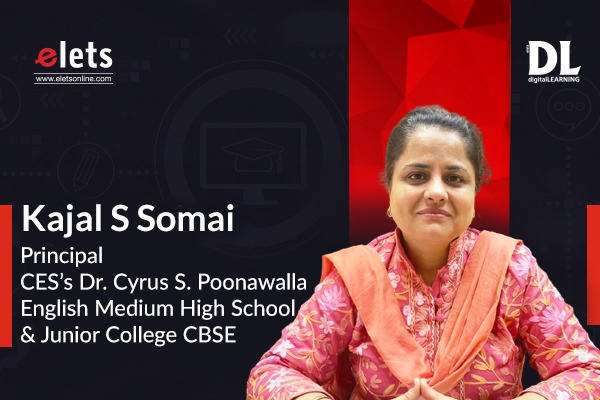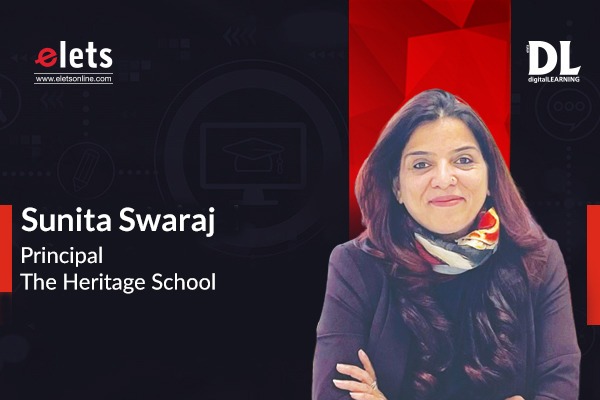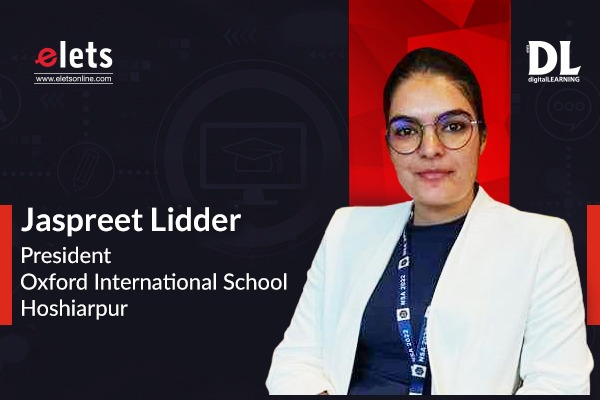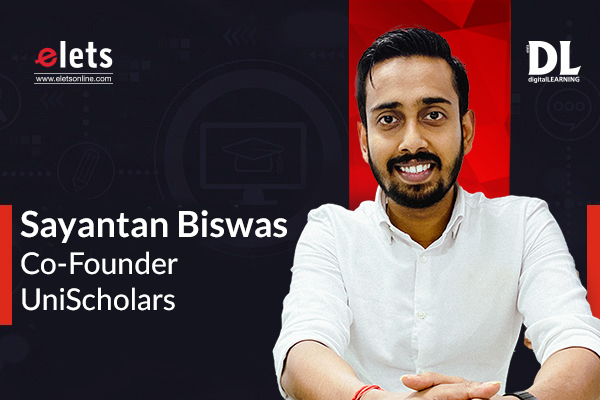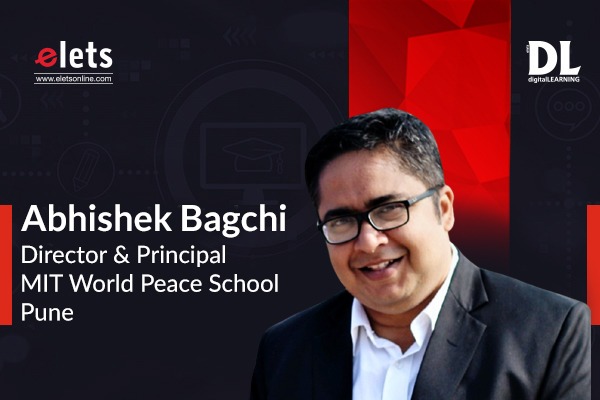International summits that focus on fostering innovation and development in the Indian education sector can play a significant role in promoting collaboration, sharing best practices, and identifying areas for improvement, shared Prof (Dr.) Sanjiv Marwah, Director, Maharaja Agrasen Business School, Delhi in an exclusive conversation with Sheeba Chauhan of Elets News Network. Edited excerpts:
How will Maharaja Agrasen Business School (MABS) stand out in the country keeping in consideration foreign universities’ plans to set up campuses in India?
Maharaja Agrasen Business School (MABS) is an integral part of the esteemed Maharaja Agrasen Technical Education Society. Our institution is committed to achieving national and international recognition as a premier higher education institution that excels in meeting the challenges of the future through interdisciplinary approaches.
At MABS, we uphold the values of practical independent thinking and provide our students with the skills and knowledge necessary for their success. Our students come from diverse backgrounds, but share a common goal of achieving their individual career aspirations. We foster this commitment by creating an academic environment that is responsive to the changing needs of the workplace while providing robust career planning support and personalized attention to the needs of each student.
Our students enjoy a vibrant campus life that promotes personal growth and prepares them to become responsible professionals in an ever-evolving world. We are dedicated to meeting the corporate and institutional training requirements and continuously strive to exceed them.
Maharaja Agrasen Business School (MABS) is pleased to announce the launch of its pilot batch for the flagship PGDM program. This two-year full-time program is designed to prepare students for the dynamic requirements of the industry. The program is divided into six trimesters, and students will undergo rigorous academic and practical training during their tenure at the institute, making them job-ready and helping them secure well-placed jobs.
MABS stands out as a business school with its Triedge focus, consisting of three main pillars:
• STRONG INDUSTRY – ACADEMIA INTERFACE – MABS has a corporate-academia blend that enables students to experience real-world scenarios in a controlled classroom environment. The institute prepares students to adapt to the rigorous corporate culture while they are still studying. Inquisitiveness and risk-taking abilities are two important attributes that MABS tries to instill in all its students. The institute has various initiatives, rigorous training programs, and exposure opportunities that equip students for the globalized world. MABS designed its core pedagogy to nurture the leaders of tomorrow, which involves hands-on experience with case studies, applications based on real industry data, live projects, and extensive industry connections via industry veterans handling academic delivery.
• BEYOND CLASSROOM LEARNING ENVIRONMENT – MABS focuses on real-time projects with industry professionals to give students firsthand experience of real-world scenarios. The curriculum is based on innovative techniques like teaching-learning models, blended learning, flip classrooms, multimedia technology, experiential learning, and student-centered learning pedagogy. The institute’s curriculum helps students discover how to take their innovative ideas from the classroom to real life and vice versa. Activities performed outside the classroom help students sharpen their problem-solving and management skills.
• INNOVATIVE TECH SAVVY CURRICULUM – MABS updates its PGDM programs regularly to be in sync with the current industrial trends, helping students learn the new and ongoing concepts and practices of business management and entrepreneurship. Hybrid learning is an integral part of the learning modules, and students can bring their bold ideas to fruition in the institute’s dynamic tech campus.
MABS is committed to providing the best education to its students and grooming them to become successful leaders. As a pilot batch, we welcome students who are passionate about learning and exploring the world of business management. We believe that our unique Triedge focus, innovative curriculum, and practical learning approach will help students achieve their career goals and prepare them for the challenges of the corporate world.
Is Maharaja Agrasen Technical Education Society (MATES) planning to do any international collaboration on the education front in the near future?
Maharaja Agrasen Technical Education Society (MATES) has been associated with several foreign universities in the past and has benefited greatly from these collaborations. As the business environment evolves rapidly, we are continuously exploring new avenues for international collaboration on the education front.
We believe that international collaboration is essential for providing our students with a global perspective and preparing them for the challenges of the future. Through these collaborations, we can exchange knowledge and best practices, develop joint research projects, and offer our students opportunities to study abroad or participate in exchange programs.
We are actively seeking new partnerships and collaborations that can enhance the quality of education and research at our institution. We are committed to exploring new opportunities and expanding our global reach to provide our students with the best possible education and prepare them for success in a rapidly changing world.
We hosted the 25th Elets World Education Summit in Dubai this time. What are your thoughts on international summits that foster innovation and development in the Indian education sector?
International summits that focus on fostering innovation and development in the Indian education sector can play a significant role in promoting collaboration, sharing best practices, and identifying areas for improvement. Such summits can bring together experts, educators, policymakers, and other stakeholders to discuss and exchange ideas on various aspects of education, including curriculum development, teacher training, technology integration, and pedagogical practices.
These summits can also provide a platform for showcasing innovative ideas, projects, and initiatives that are already underway in the Indian education sector. By sharing successes and challenges, participants can learn from each other and work towards achieving common goals.
International summits that foster innovation and development in the Indian education sector are crucial for several reasons:
● Exposure to new ideas and best practices: International summits provide an opportunity for education leaders, policymakers, and practitioners from India to learn about new ideas and best practices from around the world. This exposure to diverse perspectives and experiences can help spark innovative solutions to address local challenges and improve the quality of education.
● Collaboration and partnerships: International summits also provide a platform for networking and collaboration. By connecting with other education stakeholders from around the world, Indian education leaders can form partnerships and collaborations that can help them leverage new resources and expertise to drive innovation and development in the sector.
● Access to funding and resources: International summits often attract investors and donors interested in supporting education initiatives. By participating in these events, Indian education stakeholders can learn about new sources of funding and other resources that can help them implement innovative programs and initiatives.
● Increased visibility and recognition: Participating in international summits can help raise the profile of Indian education initiatives and showcase the country’s commitment to innovation and development in the sector. This increased visibility can help attract further investment and support for education initiatives in India.
Please brief us about the eminent personality behind the success of the Maharaja Agrasen Technical Education Society (MATES). As International women’s day is around the corner, our readers will like to know about the women behind the success of MATES and MABS.
Dr. Nand Kishore Garg is the Founder and Chief Advisor of Maharaja Agrasen Technical Education Society (MATES), and his vision has been the driving force behind the society’s success. He is a renowned educationist, philanthropist, and political figure who has devoted his life to the betterment of society.
Dr. Garg’s contributions to the field of education have been immense. He founded MATES with the aim of providing quality education to students and making them job-ready. Under his leadership, MATES has grown into a leading educational institution that offers a wide range of programs in engineering, management, and other disciplines. He has been instrumental in bringing together various stakeholders, including faculty, students, industry experts, and policymakers, to create a vibrant learning community that fosters innovation and excellence.
As a three-time MLA of Delhi Vidhan Sabha, Dr. Garg has been actively involved in shaping public policy and promoting social welfare. He has been a champion of women’s empowerment and has worked tirelessly to create opportunities for women in education, entrepreneurship, and other fields. In recognition of his contributions, he has been awarded several accolades, including the Delhi State Award for Outstanding Services in Education.
In conclusion, Dr. Nand Kishore Garg’s visionary leadership and invaluable support have been instrumental in the success of MATES and MABS. He serves as a shining example of how individuals can make a positive impact on society and inspire others to work towards creating a better world for all.
Women comprise only 13.76% of the total entrepreneurs in India according to the Ministry of Statistics. Do you think MATES will contribute to improving these numbers in the near future?
The representation of women in entrepreneurship requires a multifaceted approach that addresses a range of challenges. MATES has always been committed to promoting entrepreneurship and innovation among its students and alumni. The institute offers various programs and initiatives to support aspiring entrepreneurs, including business incubation and acceleration, mentorship and coaching, access to funding, and networking opportunities.
In recent years, MATES has also launched several initiatives to encourage and support women entrepreneurs. For instance, the institute has organized seminars, workshops, and networking events specifically for women entrepreneurs. MATES has also collaborated with various organizations and institutions to provide funding and mentorship to women-led startups.
Some of our initiatives include –
● Providing mentorship and support: MATES provides mentorship and support to women entrepreneurs. This includes connecting them with experienced mentors who can guide them through the challenges of starting and running a business. Additionally, institute also offers access to resources such as funding, training, and networking opportunities.
● Increasing awareness: Many students are not being aware of the opportunities that exist for entrepreneurship. Our institute conducts awareness campaigns time-to-time to highlight the success stories of women entrepreneurs and showcase the benefits of starting a business. This way we encourage more women to consider entrepreneurship as a viable career option.
● Providing skill-building workshops: MATES offers skill-building workshops and training programs that equip women with the knowledge and skills necessary to start and run a successful business. These programs cover a range of topics such as financial management, marketing, and business planning.
● Addressing cultural and societal barriers: In many cases, cultural and societal norms prevent women from pursuing entrepreneurship. Our Institutes address these barriers by providing safe spaces for women to network, offering resources to support, and advocating for policies that support women entrepreneurs.









